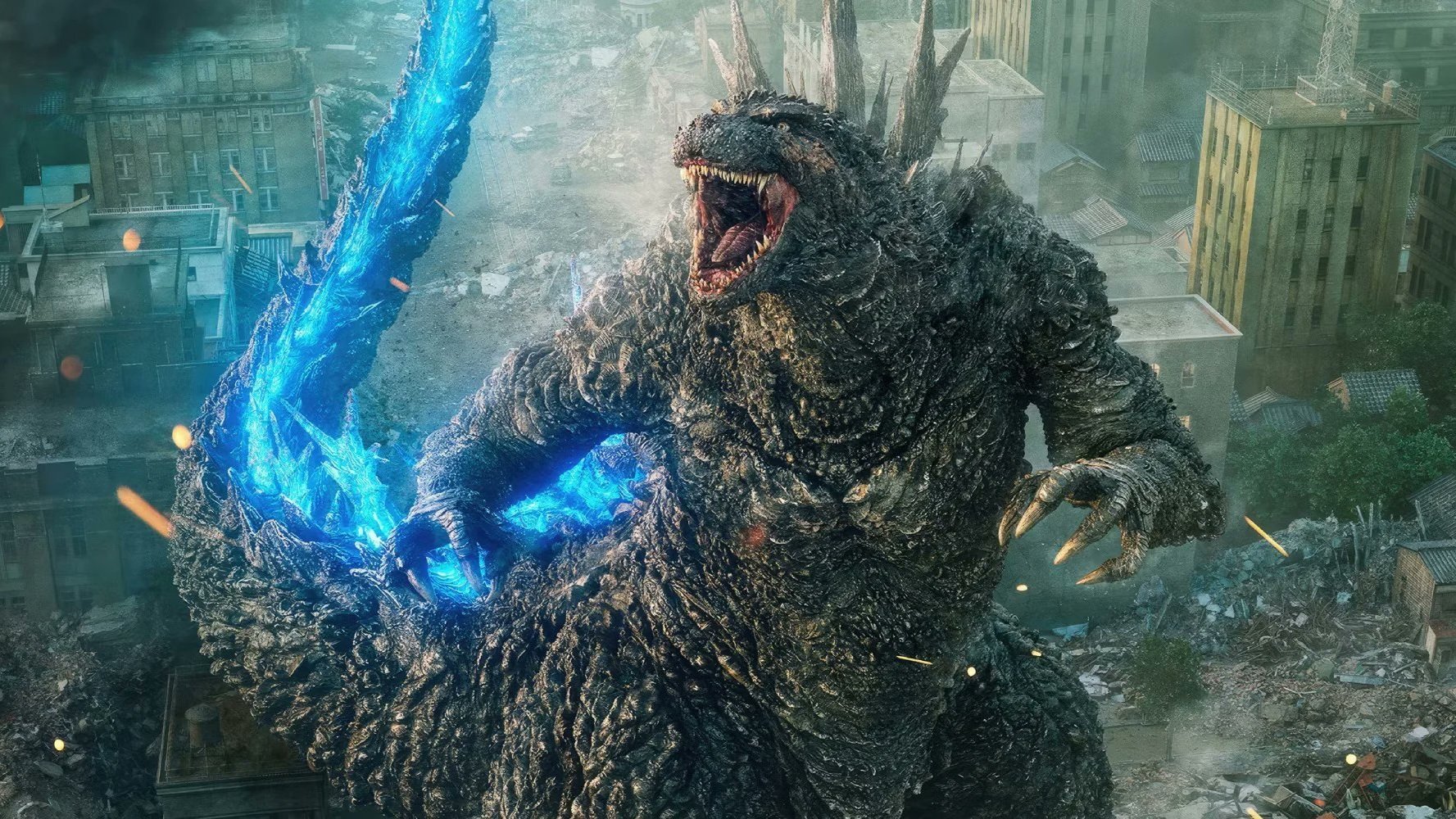Godzilla Minus One
The 37th Godzilla monster mash attempts to inject some human consequence into the proceedings.
The lizard
Godzilla is a monster of a metaphor. And while Takashi Yamazaki’s reboot of the franchise – the 37th Godzilla film to date – is a superior model to the last two Hollywood offerings, it can’t fully shake off the silliness of the lethal lizard. Here, the stomping, fire-breathing, radioactive beast still commands centre stage, although there is a much better film surrounding it. Unlike the cardboard cut-outs that populated Godzilla: King of the Monsters and Godzilla vs. Kong, the characters here are relatively three-dimensional human beings attempting to comprehend the Japanese tragedy of the Second World War.
Following the obligatory prologue (set in 1945), the film cuts to what remains of Kōichi’s neighbourhood in Tokyo, most of which has been obliterated by American bombing. He quickly learns that his parents have perished in the conflagration and that his home is in ruins, much like the rest of his noble, defeated nation. In addition to his bereavement, Kōichi (Ryunosuke Kamiki), formerly a kamikaze pilot, has to live with the shame that he has survived the war. It is then, amidst the rubble of his home, that a baby is thrust into his arms by a young woman in flight. When he locates the woman shortly afterwards, he learns that she is not the mother of the orphaned child, and so their circumstances dictate that they set up house together to form an impromptu family unit.
These early scenes recall the similar scenario at the heart of Hirokazu Kore-eda’s Oscar-nominated Shoplifters (2018), in which another group of unfortunates living on the fringes of society form a makeshift family, even though they are not biologically linked. But there all comparisons end as Kōichi lands a job helping to detonate some of the 60,000 mines floating off Japan’s shoreline. This, too, proves to be an intriguing sidebar, as it’s a problem seldom explored by cinema available to an English-speaking public. What the Americans did to Hiroshima and Nagasaki – skated over in Oppenheimer – merits a bigger canvas, besides the odd TV movie and docudrama. Of course, Godzilla is a metaphor for the nuclear-powered enemy of Japan, a devastation that has already made itself felt before this latest film starts.
And so we cut to the awakening of the indestructible beast that tosses warships and trains aside like a gorilla discarding fruit, while laying waste entire cities. Augmented by the nuclear testing of the Americans at Bikini Atoll in the Pacific, Godzilla is given little rhyme or reason other than representing a lumbering allegory.
The monster itself never feels entirely organic, while its human victims fail to generate any real concern (“The death of one man is a tragedy; the death of millions is a statistic”, to paraphrase Stalin). Even so, as monster movies go, this is an exceedingly well executed one, with a largely effective score from Naoki Satō, superior sound design and more than passable special effects. But it’s still very silly.
Original title: Gojira -1.0.
JAMES CAMERON-WILSON
Cast: Ryunosuke Kamiki, Minami Hamabe, Yuki Yamada, Munetaka Aoki, Hidetaka Yoshioka, Sakura Ando, Kuranosuke Sasaki.
Dir Takashi Yamazaki, Pro Minami Ichikawa, Kazuaki Kishida, Keiichirō Moriya and Kenji Yamada, Screenplay Takashi Yamazaki, Ph Kôzô Shibasaki, Pro Des Anri Jojo, Ed Ryūji Miyajima, Music Naoki Satō.
Toho Studios/Robot Communications-Anime Ltd.
124 mins. Japan. 2023. US Rel: 1 December 2023. UK Rel: 15 December 2023. Cert. 12A.


